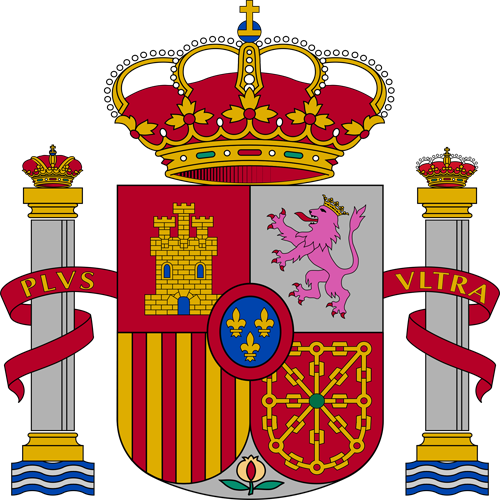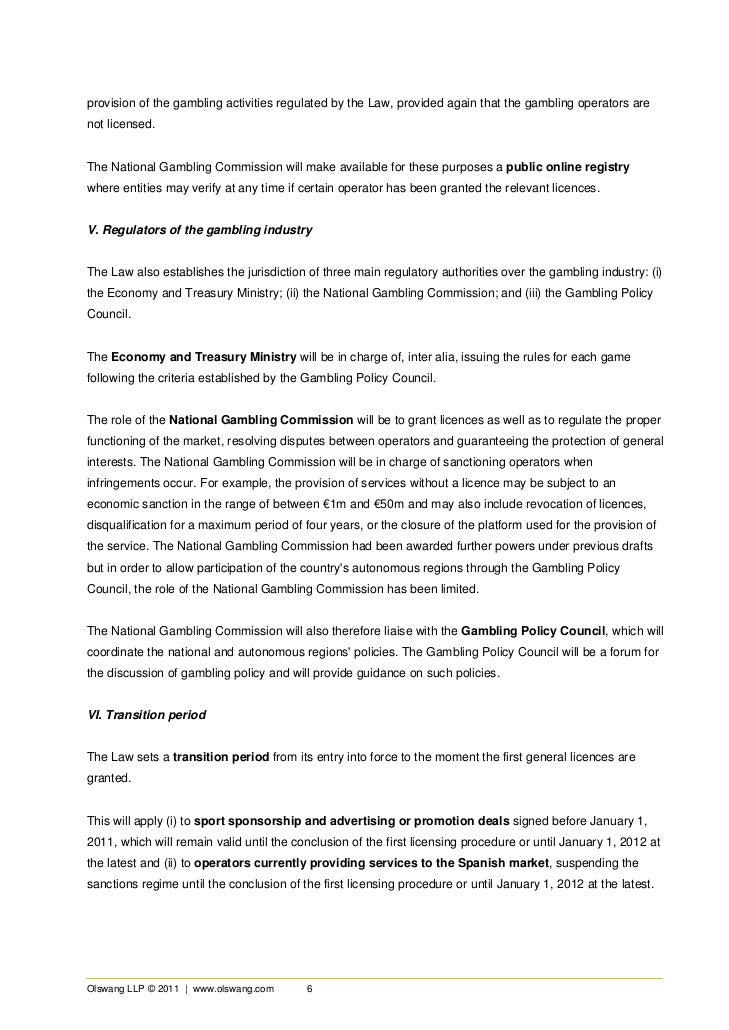Spain’s betting landscape changed forever in 2011 following the introduction of the Spanish Gambling Act to legislate a market that some analysts estimate is bigger than that of the home of online sports betting, the United Kingdom.
- Spanish Gambling Licence Online
- Spanish Gambling Licence Definition
- Spanish Gambling Licence Meaning
- Spanish Gambling Licence Application
Spanish Gambling Licence Online
A complete index of online casinos licensed and regulated in Spanish Directorate General for the Regulation of Gambling, organized by the latest casino data and information from players through AskGamblers' CasinoRank. Since the Spanish Gambling Act was introduced in 2011, operators need a separate licence for each gambling product they offer. As a result, some bookmakers offer only casino and some only offer sports betting.
Gambling has been legal in Spain for more than 30 years but, until the Spanish Gambling Act came along, the country’s 17 autonomous communities – Andalusia, Aragon, Asturias, the Balearic Islands, the Basque Country, the Canary Islands, Cantabria, Castile, ÄìLa Mancha, Castile and Leon, Catalonia, Extremadura, Galicia, La Rioja, Madrid, Murcia, Bavarre and Valencian – oversaw betting of all shapes and forms.
Officially Regulated
The main purpose of the Spanish Gambling Act is to harmonize the regulation of online betting in Spain, an activity that clearly transcends regional boundaries and requires national coordination. However, the Act still empowers the autonomous communities to continue determining the majority of gambling regulations and policies within their respective regions.
The Spanish Gambling Act regulates, in particular, national gaming operations through electronic, interactive and technological means, which include the Internet, television, mobile phones, land lines and any other interactive communication system where physical means have an ancillary role. Also, the Act regulates the provision of games by the incumbent lottery operators LAE and ONCE, regardless of the channel through which organizations offer those games.
Advertising, promotion and sponsorship concerning betting activities are included in the scope of the Spanish Gambling Act as well. In particular, the Act prohibits advertising, sponsorship or endorsement of gambling activities as well as advertising or promotion of gambling operators who do not hold the appropriate licenses. Bet365.com holds such license, and is an online gambling site we trust and recommend. The Act also states that advertising, sponsorship and promotion activities carried out by media operators regarding gambling activities or gambling operators are subject to an authorization process.
Sports Betting in Spain
The Spanish Gambling Act regulates sports pool betting, fixed-odds sports betting, sports betting exchanges, horse-race pool betting, fixed-odds horse racing betting, other forms of pool betting, other forms of fixed-odds betting, other forms of exchange betting, raffles, Competitions, other games and random combination games. The Act does not include either live in-play betting or bingo games so they are, in principle, not allowed. However, live in-play betting and bingo are permitted and operated legally in some autonomous communities, one of which is Madrid. The lack of definition of bingo games is likely to benefit LAE and ONCE provided that they can successfully argue that bingo falls within the scope of their lottery license.
All Domains Under .es
As a result of the Spanish Gambling Act, operators providing betting services to citizens of Spain must obtain a license from the country’s National Gambling Commission. Licenses are not transferable and their grant implies payment of taxes, including some back dated to before the Act came into existence. Furthermore, the Act requires licensed operators to conduct their business through a .es domain and to redirect all connections to their other domains made from locations in Spain or using Spanish user accounts.
The Spanish Gambling Act is proving successful at preventing unlawful operators from providing betting services to citizens of Spain, with upwards of 50 websites closing down voluntarily and legal proceedings under way against those websites that chose to ignore cease and desist orders.
Spanish Gambling Licence Definition



Taxes on Internet Gambling
There are interesting developments in the area of gambling taxation, with a draft legislative package that would, if it became law, enable Spanish gamblers to deduct losses from their wins for tax purposes. Such a move would be terrific for professional punters, who are currently taxed on their gross winnings from which they are not entitled to deduct their losing stakes. It would provide them with a great reason to bet with an operator licensed in Spain.
Spanish Gambling Licence Meaning
With the transition period over, it’s now illegal for Spanish citizens to bet with operators who do not hold a Spanish license. There is no shortage of choices with many of the world’s biggest gambling organizations setting up .es domains to service the European country legally.

Spanish Gambling Licence Application

Conclusion
Expect authorities to continue to tinker with the Spanish Gambling Act, both to close up any loopholes that unlicensed operators look to exploit and to eradicate any grey areas. Currently, one would have to say that there is a lack of clarity regarding what the Act calls other games, which most analysts are taking to include online poker.
Spanish gamblers may love or hate their country’s Gambling Act but it does, to a large extent, set out what is legal and what is illegal, something that has not been crystal clear to most people for the best part of four decades.
